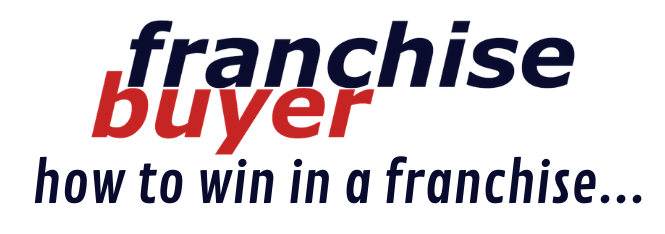June 23, 2016
Low Investment Franchise vs Your Own Start-Up
Buy into an established network or start everything from scratch?

‘Innovation’, ‘jobs and growth’, ‘entrepreneurship’ and ‘bricks and mortar’ businesses are all key buzz words being bandied around the political sphere leading into the next election. For Australians with an inkling to do ‘the next big thing’ or own ‘the great Aussie dream’ knowing how to create the right pathway can be an overwhelming and daunting prospect.
On one hand, hackathons, startup weekends filled with rapid prototyping, venture capitalist pitch nights and the lean-startup methodology sure are ‘sexy’ routes to take, but what really lies behind starting up the next disruption?

Let’s talk to the clear front runner of ‘No Market Need, ’compared to buying into an established network like a franchise.
Typically, a well – established franchise has a well-detailed marketing plan, brand awareness, an established system of operation and a clearly defined marketplace with a demand and need for their product or service. These features give every franchise owner a clear head start on their ‘own start-up’ competitors.
If you are looking to launch a new enterprise, keep in mind these key reasons CB Insights outline why startups fail. Here are some recommendations to think about, and key ways to combat them:
- Undertake extensive research into your industry,
- Ensure complementary skillsets within the team (do you have a technical mastermind, marketing guru, sales gun, financial whizz, systems boffin and an operations maverick?). To put it simply, a developer, designer and distributor.
- Access to equity, capital, funding or just plain ol’ savings to live on and draw down from,
- Hone your niche, segment of the market or validate your product \ service offering through market research and lastly,
- Confirm whether you are releasing a minimum viable product, freemium for a certain period of time or finalised a price point.
By cross-checking against this criteria, you’re taking the first step towards filtering in or out of the decision making process towards creating a startup. If one or more is missing, or you would rather run a small business, still be your own boss, but do it within a system – then a low cost, established franchise model could well be a more effective starting point for you.
True or False: Startups and Franchises Require a Lot of Work and capital.
You gotta work it – TRUE: There’s no denying that founding a new business or buying a franchise requires a lot of hard work. This comes in the form of doing your homework, due diligence and considering both the risks and rewards before investing (both emotionally and financially).
With a startup proposition you may (certainly should) need to write a business plan, eventually pitch it to investors, create a like-minded and well-balanced team, introduce a product (or service) and start selling – pronto.
On the flip side, a franchise also see you having to pore through legal documents with the help of specialist of course, wrap your head around fees, undertake extensive training programs and speak to both corporate support and existing franchise partners to gauge exactly how the business works and if it is for you. But, if you’re thinking of starting a small business, or considering buying a franchise or going it alone – each option has its own benefits and drawbacks, from low costs to flexibility and much more.
I need money – FALSE: Getting the best bang for your buck is a big driver, but, according to IBISWorld some of the hottest startup industries in the near future don’t require large amounts of capital intensity (reference: http://www.forbes.com/pictures...efgg45kmfg/11-industries-for-hot-start-ups/).
These include: corporate wellness services, human resources and benefits administration, scientific and economic consulting and relaxation beverages to name a few. If it is a low barrier to entry you are seeking coupled with projected growth, these industries are wellworth reviewing. But, remember the Top Five Reasons Startups Fail and ensure you have ticked all the boxes before you dive in.
In the franchising space, a number of opportunities not only provide you with a pertinent mix of freedom and safety – but they can also do so straight away at very low barriers to entry and, with fully integrated systems so you can hit the ground running. The thing is with franchises that are up and running is that they will generally be able to clearly point to successes in the market in the use of the product, system and brand.
The first few years of both a startup or franchise can be rough (including costs) and the franchise model in particular is renowned globally to give people with an entrepreneurial spirit a chance to harness that and simultaneously be part of a community network – which can be invigorating.
To many, the franchise business model is the best “university of business” in the world. Even if you think about approaching a franchise business in that way – invest a moderate amount, learn the business ropes by modelling and leveraging the successof others before you, then divest and use all you learnt to do your own ‘thing’. This can work for you, your franchisor and the system as a whole.
But we also totally ‘get it’ when you get that taste of excitement in the challenge of creating something of your own from scratch. The desire and willingness to show the naysayers are wrong and prove that your idea and drive can make anything happen in business. So whether you chose to buy in or startup, existing franchises execute business models, and startups need to look for and create one. Which model best suits you? Really, that is the ultimate question as it all comes down to you…

















